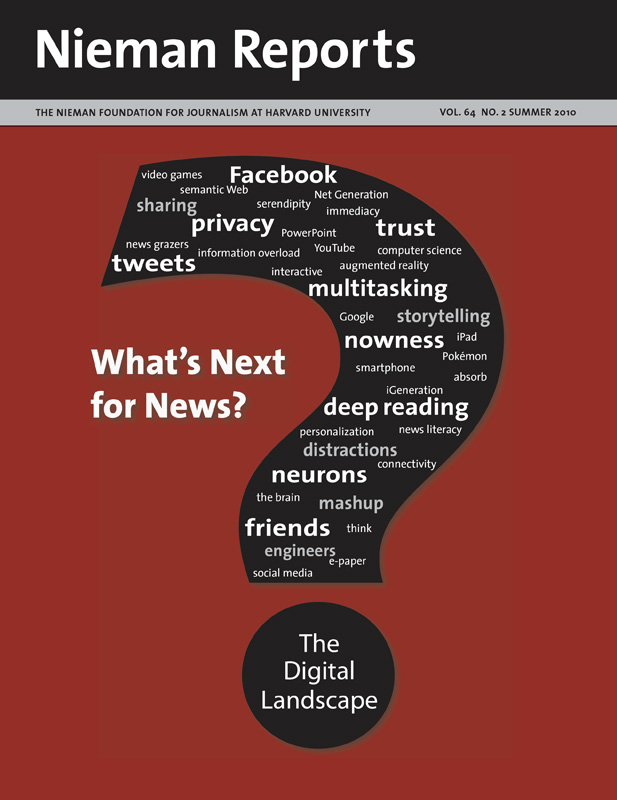For a partner in a start-up specializing in stories written by machines, the only downside to attracting coverage in Bloomberg Businessweek was the headline: “Are Sportswriters Really Necessary?”
“We want to augment what is out there rather than to replace what is already being done,” said Kristian Hammond, a partner in Narrative Science and director of Northwestern University’s Medill/McCormick Center for Innovation in Technology, Media and Journalism.
RELATED ARTICLE:
“The Peril and Promise of the Semantic Web”
-Andrew FinlaysonNarrative Science has licensed software that enables computers to write stories about sporting events based on data they assimilate and analyze. For example, it may not be financially feasible for local newspapers to cover Little League games or a college publication to cover all of its team’s softball games but Narrative Science, given accurate game statistics, could provide stories.
One of Narrative Science’s first customers is the Big Ten Network, a college sports television network. Scorekeepers from Northwestern and other participating teams e-mail data to Narrative Science and the computer-generated story appears online in minutes. (The college paper, The Daily Northwestern, covers only about 25 percent of the season’s baseball games.)
Of course machine-generated stories cannot offer the details that reporters observe by being on the scene but Hammond said that a computer can make a judgment by studying the data. One machine-generated game story suggested that the pitcher’s excellent performance during that game indicated that he might be coming out of a slump.
Hammond sees a lot of potential for Narrative Science in business reporting. Journalists report on only about 350 of the 6,000 publicly held companies in the United States. Computers could mine financial transactions to cover many more. “Machines can give voice to the stories that are in these data repositories,” he said.



